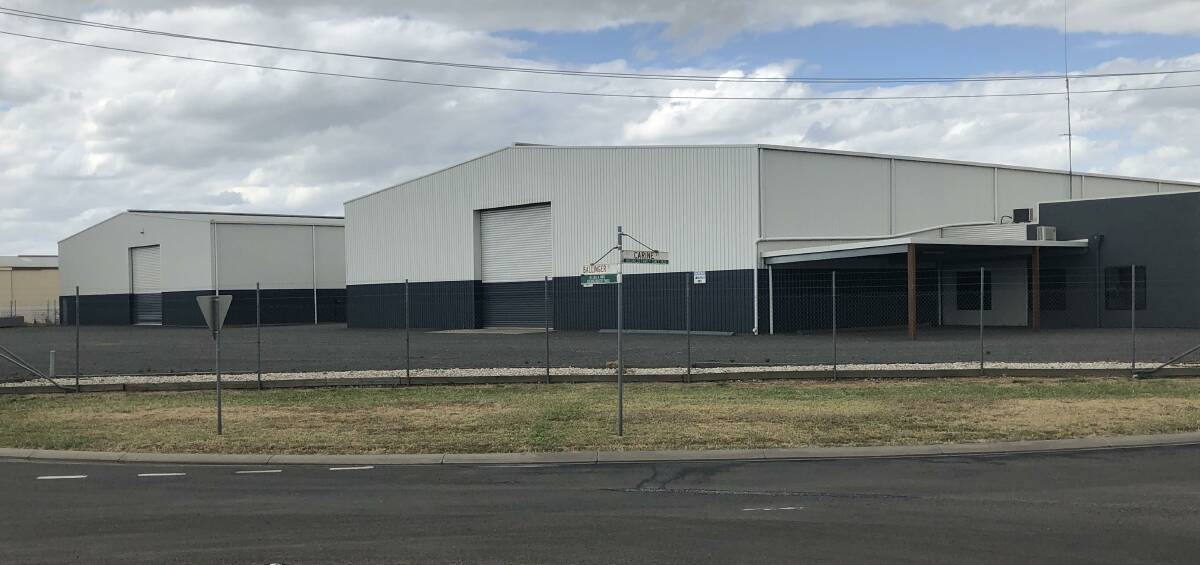
THE PRINCIPAL of a plant-based protein business building a $35 million pulse processing plant in Horsham to extract in-demand protein isolates said the company's initial investment in the Wimmera city was just the tip of the iceberg.
Subscribe now for unlimited access to all our agricultural news
across the nation
or signup to continue reading
Speaking at the Australian Pulse Conference in Horsham last week Australian Plant Proteins (APP) principal Phil McFarlane said supply would struggle to keep up with demand for plant-based protein.
He said a desire to strike while the iron was hot was behind a quick turnaround to get the Horsham plant operational, with stage 1 set to start producing a protein isolate from faba beans in May next year.
"We really wanted to be the first premium manufacturer to bring this product to market."
The first stage, costing $20 million, will see the APP plant producing 2500 tonnes of protein isolate, requiring around 10,000 tonnes of faba beans as raw material.
A second stage, which will allow lentils to also be used, would allow for another 2500 tonnes of protein, taking the total capacity at Horsham to 5000 tonnes, requiring around 20,000 tonnes of pulses as a feedstock.
APP was set up by EAT Group, the investment management group that Mr McFarlane founded with two colleagues, Gavin Evans and Brendan McKeegan.
The idea for the plant protein plant came after the group saw research from the Wimmera Development Association (WDA) which identified the potential opportunities in producing protein powder in Horsham, in the centre of one of Australia's richest pulse producing regions.
"When the WDA initiative had basically stopped, our company came in and did our due diligence about what the demand for plant based protein was likely to be going forward and how you would go about extracting the protein isolate from pulses and we've gone on from there."
Mr McFarlane said the ultimate aim for APP was to have multiple sites across the country and to produce 25,000 tonnes of the protein isolate, requiring investment of around $80-100 million.
In terms of the logistics, Mr McFarlane said the plant would take split faba beans and lentils to process.
Quality-wise he said it would be fine to use downgraded grade 2 beans or lentils, meaning the plant could provide a valuable alternative market for farmers with weather damaged product that traditionally has to be priced on stockfeed values.
Downgraded whole grain, split or kibbled grain or even byproducts from processing can all be used successfully to extract protein in the plant.
"It has no impact on the quality of the final product."
Interestingly, he said APP saw real value in using faba beans and lentils instead of chickpeas to extract the protein isolate.
It is an efficient process, with the roughly 4:1 ratio of raw product to protein isolate reflecting the protein levels in the faba beans and lentils.
"There really is very little waste, it is an environmental dream in terms of sustainability."
Mr McFarlane said the choice of feedstock was different to most others in the sector, who focus on either chickpeas or yellow peas.
"The faba beans make a fantastic protein, it is without the odour that influences the taste in pea-derived protein which the food manufacturers have to get rid of.
"The colour and the taste of the protein extract from faba beans are also both very much what the buyers are looking for."
APP will initially look to purchase from third party suppliers, but Mr McFarlane said down the track it would look at buying direct from the growers.
He said the company was already looking at potential growth chances and identified the organic pulse market as something that presented massive opportunities.


